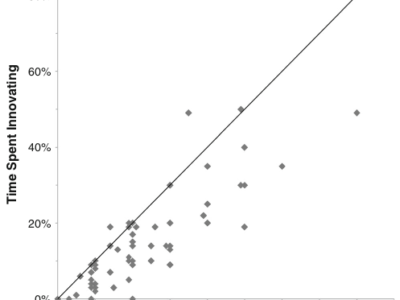Regulatory Policy
157 Days. . . And Still, Congress Has Not Acted
The President requested emergency funding to fight Zika on Feb. 22. Now the virus is starting to spread.
This just in from the Washington Post: “Florida officials on Friday announced the first local spread of Zika virus through infected mosquitoes in the continental United States. “Gov. Rick Scott made the announcement during a press conference Friday after a health department investigation into four suspected cases in Miami-Dade and Broward counties.” On Wednesday, the FDA …
Continue reading “157 Days. . . And Still, Congress Has Not Acted”
CONTINUE READINGRemember the Unitary Executive Theory? The GOP Platform Didn’t.
The platform casually blew off a key conservative belief.
The Republican platform contains a fascinating sleeper provision. It proposes to “transform the EPA into an independent bipartisan commission, similar to the Nuclear Regulatory Commission.” What makes this proposal so interesting is that it violates what used to be a core tenet of conservative belief: the unitary executive doctrine. Under the unitary executive doctrine, independent agencies …
Continue reading “Remember the Unitary Executive Theory? The GOP Platform Didn’t.”
CONTINUE READINGPence’s Environmental Record
Pence is strongly anti-environmental — but there’s one notable recent deviation.
In some ways, Mike Pence is just what you’d expect of the GOP vice-presidential candidate. He’s said that the climate change is a myth, opposed the Clean Power Plan,defended fossil fuels, and allowed a bill to end Indiana’s energy efficiency program to become law. In Congress, he voted to allow destruction of critical habitat for endangered species, expand …
Continue reading “Pence’s Environmental Record”
CONTINUE READINGDo water managers’ perceptions influence innovation?
New survey probes the innovation deficit
Climate change and population growth are rapidly increasing stress on our water systems, challenging their ability to deliver critical services. To respond to this, we need more than simple course adjustments in how we manage our water – we need entirely new paradigms that will improve resource efficiency and support more sustainable urban water systems. Considerable …
Continue reading “Do water managers’ perceptions influence innovation?”
CONTINUE READINGThe Slow Pace of Rulemaking
Rulemakings take a long time. We don’t really know what causes the delays.
A recent study by Public Citizen reports that it takes about 2.5 years to issue an economically significant rule, starting from the time the rule is first listed in the regulatory agenda. There are major differences between agencies – an economically significant rule takes EPA almost four years, rather than the 2.5 years needed by …
Continue reading “The Slow Pace of Rulemaking”
CONTINUE READINGMajor Settlement Announced in Volkswagen Emissions Fraud Litigation
$14.7 Billion Civil Enforcement Settlement is a Victory for Consumers, Environmental Prosecutors
Federal and state environmental prosecutors today announced a proposed settlement of government civil enforcement litigation they’ve pursued against Volkswagen in response to the automaker’s acknowledged efforts to cheat federal and state auto emission standards and defraud consumers. The complex settlement, lodged with the assigned U.S. district court judge in San Francisco, requires Volkswagen to pay …
Continue reading “Major Settlement Announced in Volkswagen Emissions Fraud Litigation”
CONTINUE READINGBarry Goldwater, Environmentalist
Goldwater was passionate about saving the planet.
Barry Goldwater’s views on the environment didn’t have much in common with those of the present-day conservatives who are his ideological descendants. His 1970 book, The Conscience of a Majority, has half a chapter about the environment. “Our job,” he said, “is to prevent that lush orb known as the Earth . . . from …
Continue reading “Barry Goldwater, Environmentalist”
CONTINUE READINGThe End-game for Diablo Canyon?
A landmark agreement supports the closure of a controversial nuclear plant.
Today’s announcement that the Pacific Gas & Electric Company (PG&E) has reached an agreement with several environmental and labor groups to plan for the eventual shutdown of the Diablo Canyon Nuclear Plant is a stunning development, when viewed in an historical perspective. PG&E has agreed not to seek new licenses for its power plant that …
Continue reading “The End-game for Diablo Canyon?”
CONTINUE READINGThe Road to Improved Compliance
Enforcement of environmental laws is spotty. But there are ways to change that.I
As I wrote earlier this week, environmental enforcement is not nearly as effective as it should be. EPA and others have been working on finding creative ways of obtaining compliance, often with the help of new technology. One aspect of enforcement that has become clear is the need to focus on small, dispersed sources that may …
Continue reading “The Road to Improved Compliance”
CONTINUE READINGStrong Regs, Spotty Enforcement
Environmental enforcement could use a big boost.
The political debate over regulation tends to focus on the regulations themselves. But enforcing the regulations is just as important. Despite what you might think from the howls of business groups and conservative commentators, the enforcement system is not nearly as strong as it should be. Twenty years after passage of the Clean Water Act, roughly …
Continue reading “Strong Regs, Spotty Enforcement”
CONTINUE READING









